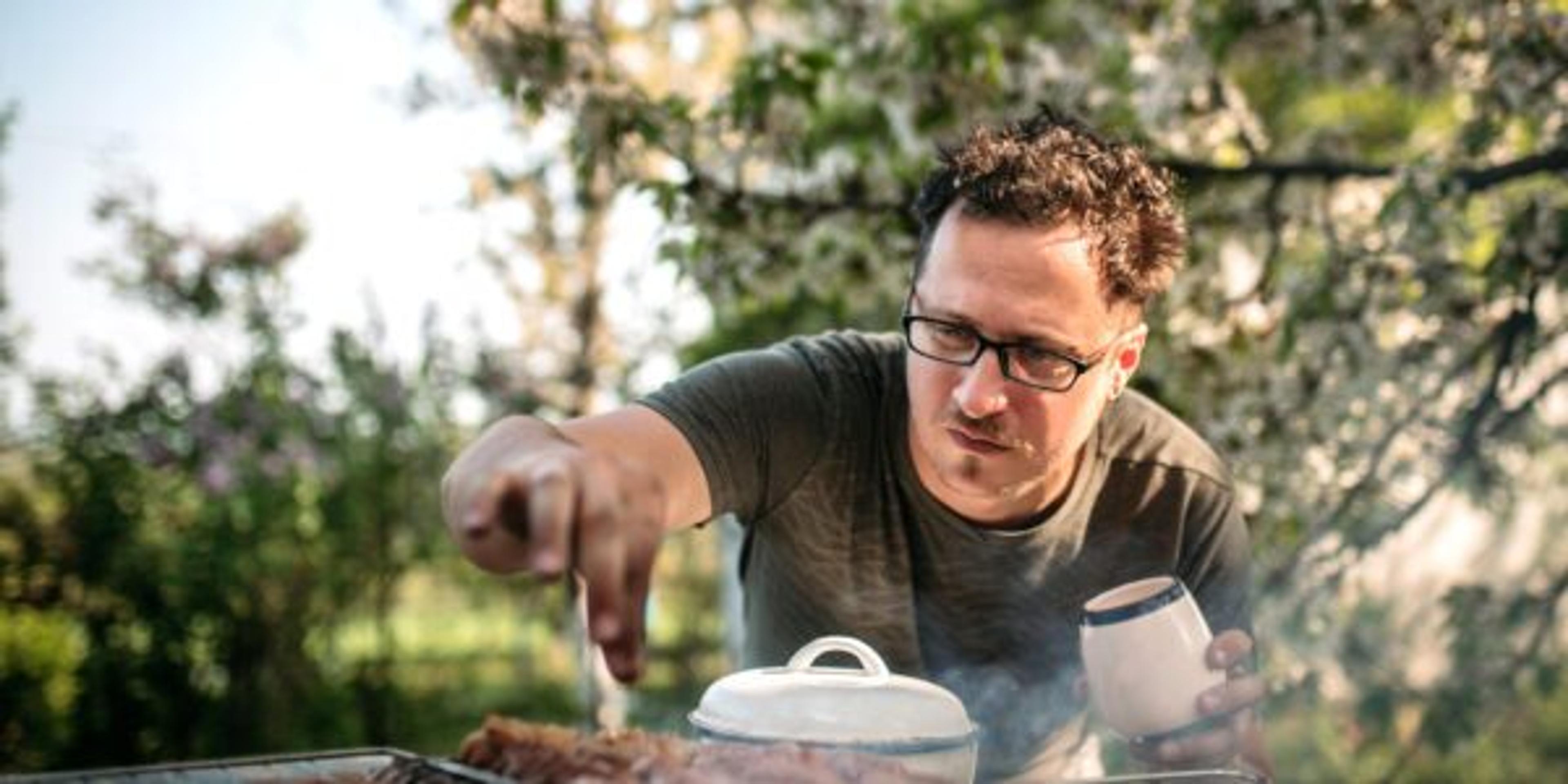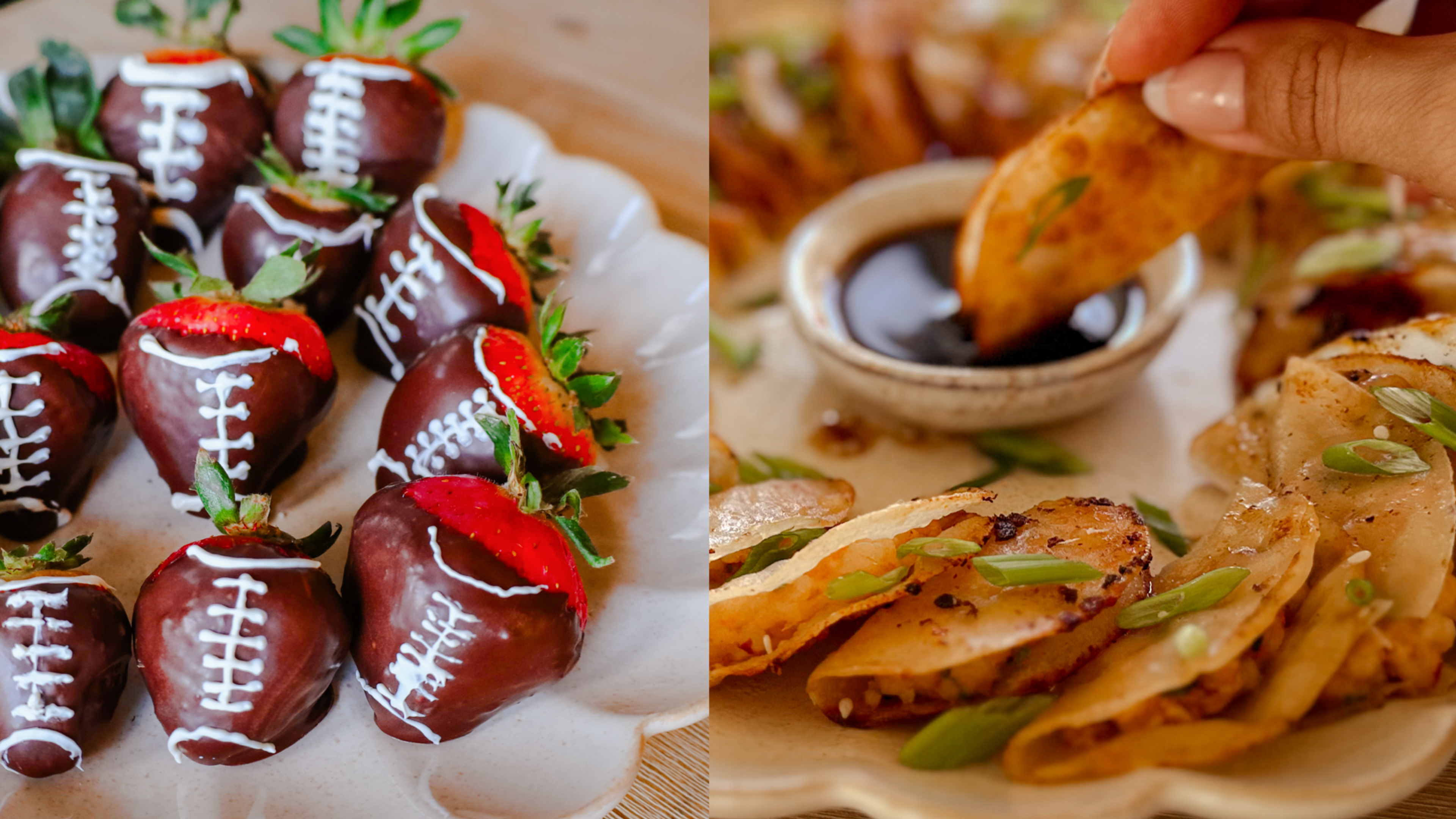5 Things You’re Doing Wrong When Preparing to Grill Meat

Shanthi Appelo, MS, RD
| 3 min read

It’s no secret Americans love grilling outside. Whether it’s a steak, marinated chicken, a thick-cut fish filet or sliced veggies, grilling is part of our mealtime DNA. Industry data shows more than 70% of all U.S. households own a grill. While preparation is key to a tasty meal, mistakes in the process can cause cross-contamination that can lead to illness.
Each year, there are about 48 million cases of foodborne illness in the U.S., federal statistics show. Of those, 128,000 people have to be hospitalized and 3,000 die. Safe food preparation is key in prevention and an important part of the responsibility of being a good host.
What is cross-contamination?
Raw foods or those that are undercooked or not washed properly are all at risk for carrying dangerous bacteria, like salmonella, that can cause illness. One of the biggest culprits when it comes to spreading foodborne illnesses is cross-contamination. Harmful bacteria can easily be transferred from one food to another, or to nearby surfaces including cutting boards, knives, tongs, or other utensils used to handle uncooked or unwashed foods.
Raw meats, poultry and seafood – the meats we typically grill – are an especially high risk for cross-contamination, according to the U.S. Department of Agriculture’s Food Safety and Inspection Service. These types of foods and any of their juices need to be kept separate from food that is already cooked or fresh foods that are ready to eat.
What is Campylobacter?
It’s estimated that more than 1.5 million people become sick from Campylobacter infection in the U.S. each year, and many of them are linked to improper food handling. The Campylobacter bacteria is the most common bacterial cause of diarrheal illness in the U.S., though many cases go unreported and undetected. Eating raw or undercooked poultry is a big cause of infection; but eating other uncooked meats – or foods that touch them – can cause it, too. Serious symptoms include bloody diarrhea, stomach cramps and a fever, according to the Centers for Disease Control and Prevention.
Five safe food handling tips
Here are five things to never do when preparing to grill meat – and what to do instead:
- Don’t thaw meat on the counter. Instead, always thaw frozen meat in the refrigerator to prevent rapidly growing bacteria.
- Don’t season meat by shaking the salt, pepper or spice containers right over the raw meat. Containers could become contaminated with bacteria by accidentally touching them with hands that have touched the raw meat, or by transferring bacteria when opening and closing the small container lids. Instead, measure spices into a separate bowl first to keep the containers clean.
- Don’t keep meat at room temperature too long. If it’s been left out for more than two hours, it is not safe to eat because rapidly growing bacteria thrive at this temperature.
- Don’t use the same cutting board for raw meats and other items. Use separate cutting boards for each food item being prepared. After using cutting boards for raw meat, wash them with hot, soapy water.
- Don’t forget to wash hands. It’s important to use hot, soapy water to clean hands before and after handling raw foods.
Grilling safety tips
Bacteria associated with raw or undercooked meats is not the only grilling-related danger. More than 20,000 people each year end up in hospital emergency rooms with injuries associated with charcoal or gas grills. Half of those are burn-related injuries. Some tips for keeping everyone safe:
- Have a fire extinguisher nearby.
- Keep small children away from the grill while it is in use.
- Keep the grill away from the house or garage.
- Use the correct tools to handle food on the grill.
Shanthi Appelö is a registered dietitian and health and wellness spokesperson at Blue Cross Blue Shield of Michigan.





